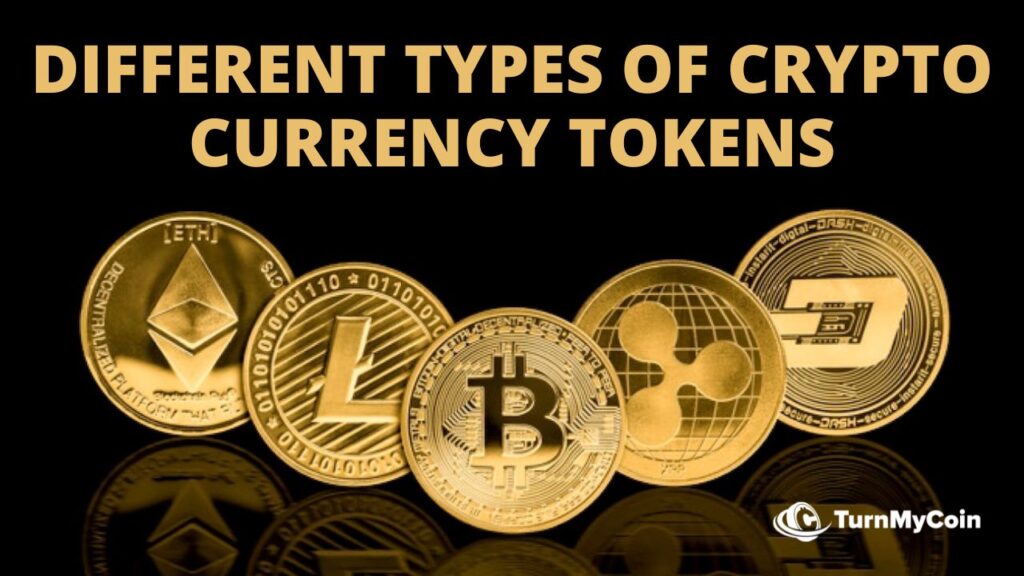Last updated on March 7th, 2023 at 11:49 am
Introduction
In recent years, cryptocurrency has gained widespread attention and interest. So many people around the world use it as a means of exchange and investment. One aspect of cryptocurrency that people are less aware of is the different types of Crypto Tokens.
Cryptocurrency tokens are digital assets that are built on top of a blockchain. It is a decentralized and secure digital ledger. These tokens can be used for a variety of purposes, including providing access to a product or service, or as a means of exchange.
There are several different kinds of tokens, each with its own unique characteristics and uses. Here is a breakdown of some of the most common types of cryptocurrency tokens:
1. Utility Token
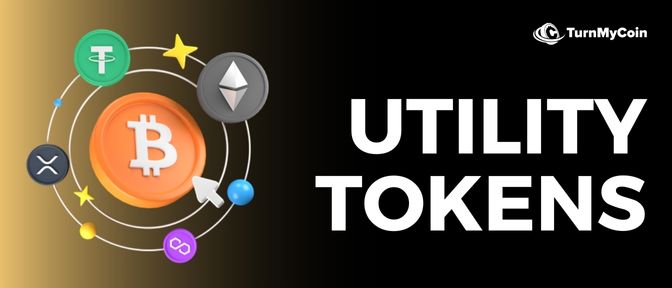
Utility tokens are the first on our list of different types of Crypto Tokens that are designed to provide access to a product or service. They are commonly used by companies to fund the development of new projects. They also provide users with a way to purchase goods and services within a specific ecosystem.
One of the key features of utility tokens is that they are not typically considered to be securities. This means that they are not subject to the same regulations as securities, such as stocks or bonds. This allows companies to issue utility tokens as a way to raise capital. Starting a business without the lengthy and costly process of issuing traditional securities.
One of the most well-known examples of a utility token is Ethereum’s Ether (ETH). “Ether is the native Token of the Ethereum blockchain. It is used to pay transaction fees and to execute smart contracts. In this sense, Ether serves as a utility token for the Ethereum ecosystem.
“Another example of a utility token is the Basic Attention Token (BAT). It is used to access content and services on the Brave browser.” Users can earn BAT by viewing targeted advertisements or by participating in other activities within the Brave ecosystem.
Utility tokens can also be used to fund the development of new projects or products. For example, a company may issue a utility token that can be used to purchase a subscription to a streaming service or to pay for a ride-sharing service.
One of the benefits of using utility tokens is that they provide users with a way to access products and services within a specific ecosystem.
However, it is important to note that the value of utility tokens is not always guaranteed. there is a level of risk involved in investing in utility tokens.
2. Platform Tokens
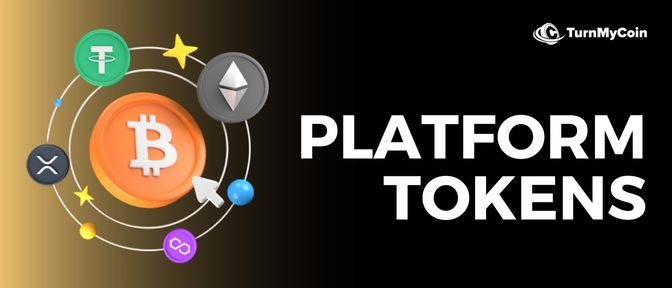
Platform tokens are second in the list of different types of crypto tokens that are used to access and participate in the activities of a particular blockchain or decentralized platform. They are built into the infrastructure of the platform and are used to facilitate its operation.
One of the most well-known examples of a platform token is Bitcoin (BTC), which is the native token of the Bitcoin blockchain.
Another example of a platform token is Ether (ETH), which is the native token of the Ethereum blockchain.
Platform tokens serve a variety of important functions within their respective platforms. In addition to being used as a means of exchange, they can also be used to incentivize the participation of users in the network and to secure the network through proof-of-work or proof-of-stake mechanisms.
The value of platform tokens is often closely tied to the success and adoption of the underlying platform. As more people use and rely on the platform, the demand for the token may increase, leading to an appreciation of its value.
However, the value of platform tokens can also be influenced by a variety of external factors, such as market conditions and regulatory developments.
One of the key benefits of platform tokens is that they provide users with a way to access and participate in the activities of a decentralized platform. This can help to create a sense of community and encourage the development and adoption of new technologies.
However, it is important to note that investing in platform tokens carries a level of risk. The success or failure of a particular platform can have a significant impact on the value of the associated token.
3. Transactional Tokens
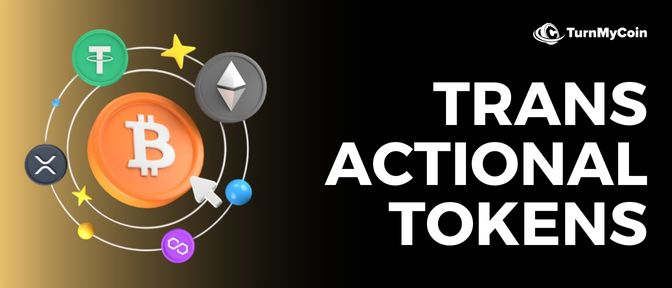
Transactional tokens, also known as payment tokens or currency tokens. They are different types of crypto tokens that are used as a means of exchange for goods and services. These tokens are often used as a substitute for traditional fiat currencies, such as the US dollar or the euro, and can be used to facilitate transactions between individuals and businesses.
One of the most well-known examples of is Bitcoin (BTC), which was designed to function as a decentralized digital currency. Bitcoin can be used to purchase goods and services online, as well as to transfer value between individuals without the need for a central authority.
Other examples of transactional tokens include Litecoin (LTC) and Dash (DASH), which are also designed to function as digital currencies. These tokens can be used to make purchases and transfer value in a similar way to Bitcoin, but they may have different characteristics, such as faster transaction speeds or increased privacy features.
Transactional tokens have several advantages over traditional fiat currencies. They can be used to facilitate transactions quickly and cheaply, without the need for intermediaries such as banks. They can also provide users with a greater degree of control over their own financial affairs, as they do not rely on central authorities to issue or manage the currency.
However, it is important to note that the value of transactional tokens is not always stable. The price of these tokens can be volatile and can be influenced by a variety of factors, such as market conditions and regulatory developments.
Overall, transactional tokens have the potential to revolutionize the way we think about money and financial transactions. While there are risks involved, these tokens have the potential to provide users with a more efficient and convenient way to exchange value.
4. Security Token
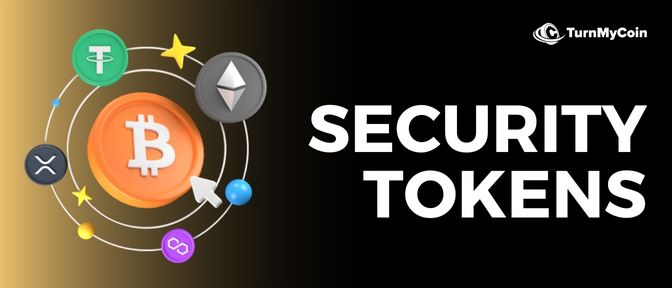
Security tokens are cryptocurrencies that derive their value from an external asset. For Example, real estate property or a share of a company. They can be traded under financial regulation as securities, which means they are subject to capital gains tax and laws.
Security tokens are subject to federal and state securities laws. It means that they must comply with regulations related to the issuance, trading, and reporting of securities.
This includes the requirement for companies to register their securities offerings with the SEC and to provide ongoing reporting to investors. Security tokens offer several potential benefits over traditional securities.
For one, they can be issued and traded more efficiently on blockchain platforms. It can reduce the costs and complexity associated with traditional securities trading.
They can also be more easily fractionalized, meaning that they can be divided into smaller units and traded in smaller increments. It makes them more accessible to a wider range of investors.
However, security tokens also come with their own set of regulatory challenges. In addition to compliance with securities laws, issuers of security tokens must also ensure that their tokens are compliant with anti-money laundering and know-your-customer regulations.
5. Governance Tokens

Governance tokens are digital assets that give their holders the right to participate in the governance of a platform. This can include the ability to vote on important decisions, propose and debate new ideas, or even contribute to the development of the platform.
Governance tokens can be used to create more transparent and decentralized decision-making processes within organizations. They can also provide a mechanism for aligning the incentives of different stakeholders, such as developers, users, and investors.
There are several different types of crypto tokens, including:
Voting tokens: These tokens give their holders the right to vote on various decisions within the organization. For ex- allocation of resources or the selection of new team members.
Proposal tokens: These tokens allow holders to propose and debate new ideas or changes to the organization.
Staking tokens: These tokens are used to “lock up” a portion of a user’s assets in order to give them a greater say in governance decisions. This can help to prevent voting abuses and ensure that only committed stakeholders participate in governance.
Work tokens: These tokens are used to reward individuals or teams for contributing to the development or maintenance of the platform.
Governance tokens are often used in decentralized finance (DeFi) platforms and decentralized autonomous organizations (DAOs). They can also be used in other types of blockchain-based platforms, such as decentralized cloud storage or prediction markets.
6. Non-fungible Tokens
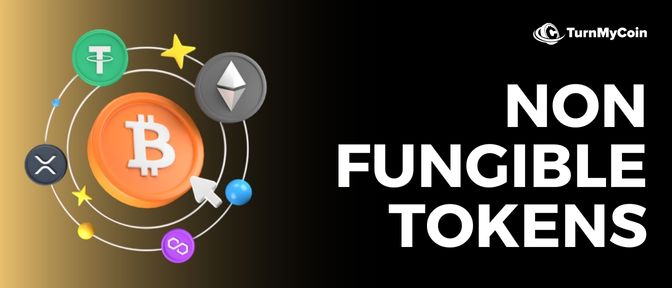
Non-fungible tokens (NFTs) are a type of cryptocurrency token that represents ownership of a unique digital asset.
For Example, as a piece of art, a collectible, or a virtual real estate property. Unlike fungible tokens, which are interchangeable and have the same value.
Non-fungible tokens are unique digital assets that cannot be exchanged for other tokens on a one-to-one basis. One of the key features of non-fungible tokens is that they are stored on a blockchain. It provides a permanent and tamper-proof record of ownership. This allows for the creation of verifiable and transparent markets for unique digital assets.
Non-fungible tokens are often used in the gaming industry to represent in-game items or collectibles. They are also used in the art world to represent ownership of digital artworks and other creative works.
There are several different types of non-fungible tokens, including:
ERC-721: This is a type of non-fungible token that is built on the Ethereum blockchain. ERC-721 tokens are widely used in the gaming and art industries.
ERC-1155: This is a newer type of non-fungible token that allows for the creation of bundles of both fungible and non-fungible tokens within a single smart contract.
BEP-721: This is a non-fungible token standard that is being developed for the Binance Smart Chain.
Overall, non-fungible tokens represent a promising application of blockchain technology for the ownership and trading of unique digital assets.
7. Asset-based Tokens
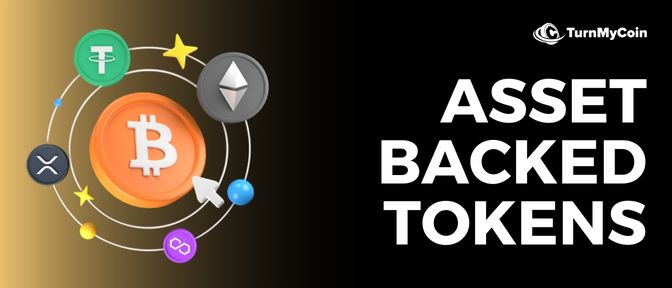
Asset-backed tokens are different types of tokens in cryptocurrency that represent ownership of a physical or financial asset. These assets can include commodities, such as gold or oil, real estate, or even artworks.
Asset-backed tokens offer a number of potential benefits over traditional assets. One such advantage is that they can be more easily traded and transferred on blockchain platforms. This can reduce the costs and complexity associated with traditional asset trading.”
One advantage of cryptocurrency tokens is that they can be divided into smaller units, known as fractionalization. It allows them to be traded in smaller increments and therefore more accessible to a wider range of investors.
Examples of these assets include real estate and physical commodities such as gold or oil. Asset-backed tokens can be used to facilitate the buying and selling of these assets in a more efficient and transparent manner. Overall, asset-backed tokens represent a promising application of blockchain technology for the ownership and trading of physical and financial assets.
Conclusion
Different types of Crypto tokens offer a wide range of potential applications and benefits. These can include the ability to represent and trade different types of assets more efficiently and transparently.
However, they also come with their own set of regulatory challenges and considerations. It will be interesting to see how these different types of crypto tokens continue to evolve in the future.
